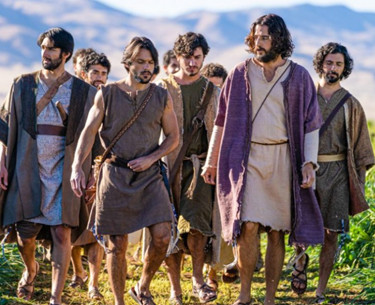One of the hardest things to overcome in human nature is the tendency to categorize people between those who are "in" and those who are "out." We all want to be accepted by our own inner circle of family and friends, and exclusion by contemporaries can be painful and even damaging. People derive a sense of self worth and a way of exerting power over others by belonging to a group that, in their own eyes, seems to be better than others. To maintain acceptance we may even keep silent when we should object to unkind behavior or conversation by our peers.
 The need to belong to the inner circles can be found in all age groups, cultures, religions, nationalities, races and in both genders. It can be the source of peer-pressure, bullying, political partisanship and polarization. But it can also lead to the self-inflicted wound of blinding oneself to the larger picture, the broader outlook, the more hopeful vision.
The need to belong to the inner circles can be found in all age groups, cultures, religions, nationalities, races and in both genders. It can be the source of peer-pressure, bullying, political partisanship and polarization. But it can also lead to the self-inflicted wound of blinding oneself to the larger picture, the broader outlook, the more hopeful vision.
This "inner circle" mentality has never been more prominent. Words of accusation and condemnation, false claims, hyperbole and outright lies dominate our political scene. Words of impossible promises and drastic actions, oversimplifications, and polarization seem to define the global society and indeed even our church.
We can get so carried away with all of this that we fail to pay attention to what really matters – to where we are going and how we are getting there. Sometimes, it is nearly impossible to discern the right way, the good and righteous way, the compassionate, just and peaceful way when we are inundated with all these words, with all this talk.
The Book of Numbers and the Gospel should make all of us a little bit uncomfortable, or at the very least cause us to examine our own attitudes. Our own arrogance can separate us from one another which in turn can lead us to abuse those who are poor or dependent on us. It can make us selfish and self centered. We can become insensitive and uncaring.
And this leads to divisiveness. We draw lines. We get carried away with our own importance. We enshrine own way of following Jesus, our own particular devotions, our own acts of piety. Thus we are tempted to condemn, criticize or ignore all others who act or think differently.
Our daily experiences of God act as signposts pointing to one Truth. It is a simiple Truth which has many implications. The God that Jesus reveals is a God of unfathomable love. The Spirit he sent is not limited to one church or religious community in achieving God's purposes. The revelation that Jesus came to bring is much more than dogmatic pronouncements or theological definitions of who the Father is and what God is all about. Jesus continually reminds us of the words of Isaiah: "God has written our names in the palm of His hand." (Is. 49) He reveals through His words and His life and death that we are already saved, that we are loved beyond all measure by a God who loves recklessly and extravagantly and that we all "belong." Every human being has this relationship with God. Everyone has been given this gift. Every one of us is a member of the elect. Grace is not exclusive but universal.
For the true disciple, there is no such thing as the "inner circle." All are "chosen." There is no conservative or liberal, no traditionalist or progressive, no orthodox or "cafeteria catholic." The meaning of the word "catholic" points to something or someone universal, all encompassing and all-embracing. If we truly believe what we profess week after week, then our motto as "disciples" should echo the words of Moses in our first reading: "Would that all the people of the Lord were prophets! Would that the Lord might bestow his spirit on them all!"
Wouldn't that be wonderful indeed.




